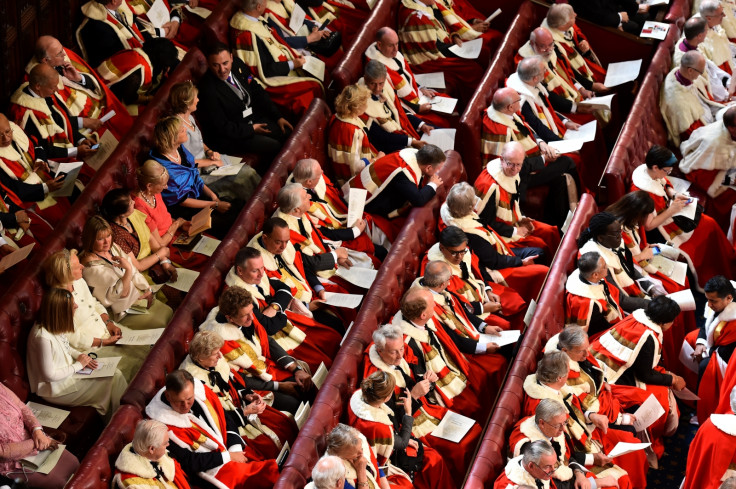Deborah Doane: House of Lords – it's not the size that matters.
The Lords is expected to push a whopping 820-strong by today, a size that will make it burst at the seams after David Cameron's attempt to stack the house with his mates. It's the largest projected upper house anywhere in the Western world.
I have to admit, somewhat guiltily, that I have a fondness for the Lords. In my limited dealings, I've found some members to have been extraordinarily hard-working, even to a ripe old age, and I have come to value their experience. One wise Lord once told me, over tea and scones in the dining room of this grand upper house, that I needed to learn to be more patient and slightly less bull-headed if I was going to achieve anything at all. Fair enough.

Imagine how hard it's going to be to get a seat for tea with so many new appointments? Because until the government is prepared to grasp the nettle and look at genuine reform, jostling for scones is probably the main thing we have to be concerned about with regards to a super-sized Lords.
If we want a more effective upper chamber, we need to radically overhaul not only how they're appointed, but their remit too. People already complain that democracy is too remote. Young people are apathetic and, in a first past the post system, our elected officials actually fail to represent people's real voting intentions. Can a reformed Lords be part of the antidote to a democratic deficit?
Putting aside the additional cost of the per diems – at more than £90m is no small absolute sum, but in reality represents barely a scratch in government spending – most of the time they collect the title but do little more than have a cup of tea and some baked goods, read the paper, then clock out. Some, like Lord Archer, even stay out of trouble and pass the time in jail. Certainly a minority would be considered working peers – probably less than a quarter.
I would be happy to support 2,000 hard-working peers than just a handful of layabouts and title grabbers. When they're working at their best, they tend to make legislation better and sharper. Occasionally – and perhaps contradictorily, given the nature of how they got there – they truly shine a light on attempts by governments to pass undemocratic legislation. Such was the case in 2008, when their uproar caused Gordon Brown to back down on imposing legislation that would have seen terror suspects detained for 42 days without charge.

I have no illusions that an elected upper chamber would produce ideal results. It could result in presidential-style deadlocks like those we see in the US, practically crippling the government's ability to govern. But we certainly need to find a way for an upper house to be more representative than it is now, of class, gender, ethnicity.
As important for me, though, is how they go about the work that they do.
All guns blazing
We still want them to scrutinise legislation, not rubber stamp it, nor halt it entirely. But scrutiny could include, for example, more 21st century ways of engaging the public on matters of legislation. Why not hold public-facing Lords enquiries into selected issues? Why not extend the remit of the Lords to ensure a more outward facing body? A community of elders tasked with the role of fielding opinions from wider sections of society?
During the 2010 election, all guns were blazing on Lords reform, but David Cameron has clearly kicked any promises into the long grass until after 2020. In the meantime, he'll glean as much out of adding a few more peers as he can. Because perhaps he knows, too, that the most harm they can do in their current form is to each other in a brawl over the availability of scones.
© Copyright IBTimes 2024. All rights reserved.






